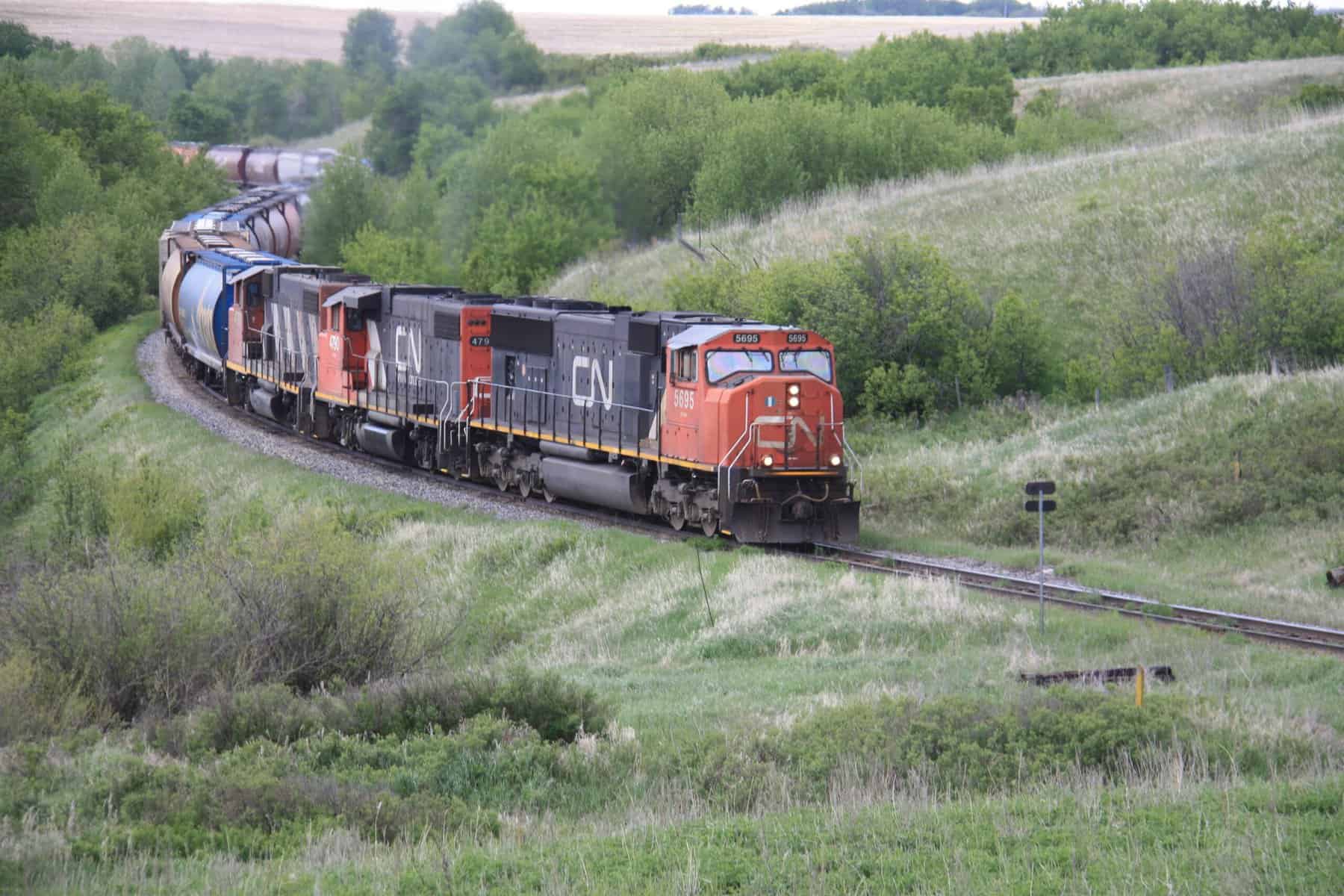NFU Supports Negotiated Settlement to CN Rail and CPKC Labour Disputes
Saskatoon, SK – Teamsters Canada Rail, the union that represents workers for both the Canadian National (CN) and Canadian Pacific Kansas City (CPKC) rail lines has been in negotiation with both rail lines since 2023. The collective bargaining agreements for Canada’s two freight rail lines expired in December 2023 and negotiations have not been successful. Teamsters has cited the attempts of CN and CPKC to undermine work fatigue and safety concerns in the collective bargaining process.
In response to a vote to strike by Teamsters in May 2024, former Labour Minister Seamus O’Regan asked the Canadian Industrial Relations Board to rule on the essential nature of railway workers, and therefore their ability to strike. After 4 months, the Board ruled that Teamsters were allowed to strike and could begin so on August 22.
CPKC issued a lockout notice for August 22, and in response, Teamsters announced will begin striking on August 22 as well. CN Rail has also issued a lockout notice to begin on the same day.
“The lockout and rail strike will certainly affect the operations of Western Canadian grain farmers especially during a crucial time of year. It is the actions of CPKC and CN, however, that is disrupting business. It was not Teamsters that issued the lockout notices first.” says Al Birchard, grain and pulse grower. “The railway duopoly is pressuring workers to accept unsafe working conditions which jeopardize worker safety and the proper operation of the Canadian railway system. Back to work legislation will not address long term issues that could affect the ability of farmers to deliver their grain.”
Will Robbins, NFU Board Member in Saskatchewan comments: “Using farmers anxieties around harvest time to punish reasonable requests from railway workers is bad faith. As a farmer, I do not like being used as a bargaining chip. Railways are key infrastructure for farmers and for the production of food in Canada. This infrastructure must serve the interest of Canadians, including farmers and workers, rather than be used for profit-making. Farmers and railway workers have much in common – they are both looking for dignified work and a fair return for their labour.”
The ability for railways to make profits in this way has come from management systems that focus on reducing costs. These costs reductions have come in the form of cost externalization on farmers (longer trucking distances resulting from closure of inland terminals and elevators), as well as labour cuts. Labour cuts put more pressure on workers, requiring longer shifts and more relocations. Shipments and grain tonnages have increased, demanding more out of staff as well.
Between 2013 and 2023 CN Rail’s annual net income has doubled from $2.6 billion to 5.6 billion. During the same period, CPKC’s annual net income more than tripled from $875 million to $3.9 billion.
“The NFU has always stood with workers in fair negotiations and upholding their right to the collective bargaining process. Rail workers should be allowed to uphold their right to seek a just return on the labour they provide, as do farmers when they sell their produce,” says NFU President Jenn Pfenning. “It is important to ensure worker safety and, therefore, the timely operation of the Canadian rail system which is so important for farmers.”
– 30 –
